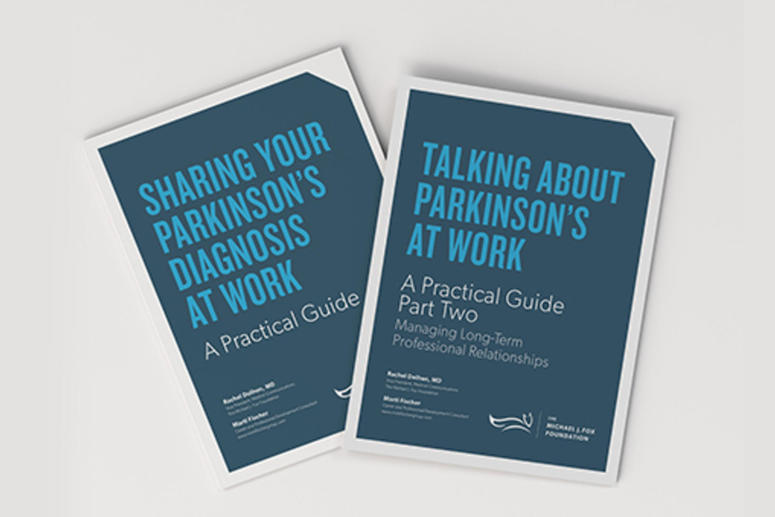
A Parkinson's diagnosis means thinking about whether symptoms may affect your work now or in the future, and about how to talk to your boss and colleagues. If and how you bring Parkinson's into the workplace is a personal decision.
Your Ability to Work
Parkinson's disease (PD) is different for everyone. How it affects your ability to work depends on the type and severity of your symptoms and the kind of work you do. Some people with Parkinson's are still working 20 years after their diagnosis. Some people who find that their symptoms make work difficult are able to transfer to a different, more manageable job or work part-time. Others are unable to continue in their jobs after a year or two. For example, if you are a house painter and have balance problems, you may not be able to climb a ladder safely. In general, though, most people can expect to be able to work for several years before Parkinson's substantially interferes with their ability to do their job.
Speaking with Your Employer
Each situation is different and much depends on your relationship with your boss or employer. Spend some time thinking when, how and what you will say to your employer about your diagnosis. Many people with PD hold off telling their boss, but if your work quality begins to suffer, you may have to face questions or disciplinary action.
Speaking with your employer about your PD can be a relief to both of you, especially if others will notice your symptoms. It can open the door to your employer making accommodations that will allow you to continue your job. However, your employer may not be required to make such accommodations. Before "coming out" at work, look into accommodations for your situation as required by the Americans with Disabilities Act (ADA).
Be aware too, that you may need to educate your employer and colleagues about PD. They may know nothing about it or have misconceptions. One thing is for certain: they don't know your individual symptoms and how PD affects your daily life. Although it can be hard to talk about PD, talking about your experience can be reassuring to your colleagues, especially if your disease is mild and you feel confident about continuing work.
In general, the decision of whether to inform your employer involves so many individual factors that one-size-fits-all advice is not possible. Many people with Parkinson's find that they receive far more support than they thought they would, but that depends on their professional relationships before Parkinson's disease, the company they work for and their ability to make meaningful contributions despite their symptoms. However, should you anticipate or experience conflict with your employer, consult with an attorney.
Learn more in our two-part guide on Sharing Your Diagnosis at Work:

If You Can No Longer Work
If you can no longer work, finances often are top of mind. If you are already of retirement age and are fully vested in your pension, you will probably retire — much as if you would if you did not have Parkinson's disease. Some pension plans include medical benefits that may even cover prescription medications. In some cases, you may be eligible for early retirement, which generally reduces the amount of your benefits by a percentage that depends on how many years away from full retirement you are when you stop working.
You also may have a 401(k) or other retirement savings plan that you've been contributing to while working. Under certain circumstances, you may tap into these funds before age 59-1/2, but there may be penalties or taxes that make this undesirable.
Watch the financial planning with Parkinson's webinar.
Download the financial planning webinar slides.
Americans with Disabilities Act
Job protection under the Americans with Disabilities Act (ADA) is available only if you are "disabled," inform your employer of your disability and request a "reasonable accommodation" to allow you to continue to do your job at a satisfactory level. Parkinson's disease in its advanced stages is recognized by the federal government as a disability, allowing people with PD to secure the protections of the ADA. However, because the Act requires an individual to be impaired in some way that affects his or her daily life, not every person with Parkinson's will meet the standards.